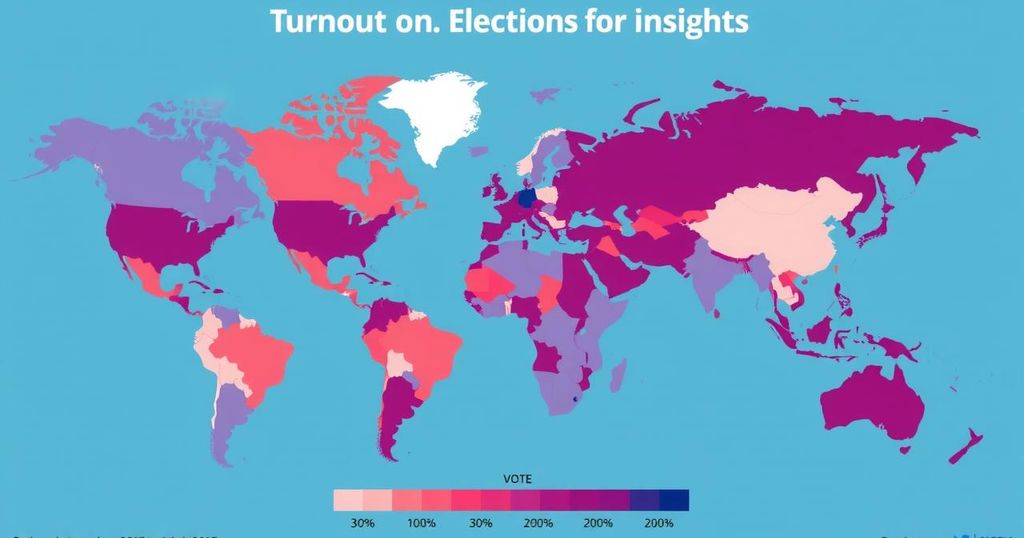In 2024, more than 60 countries participated in significant elections, marking a historic moment for democracy with nearly half the world’s population voting. While attendance was high, the results revealed a tendency towards self-interest and economic motivation among voters, overshadowing collective global concerns like climate change. Notable shifts occurred in various nations, with incumbents facing difficulties due to economic challenges, as exemplified by Trump’s return to power in the U.S. and changes in leadership in the UK and India.
The year 2024 marked a significant milestone in democracy, with over 60 countries representing nearly half of the global population participating in elections. While such engagement is commendable, the outcomes have unveiled persistent self-interest among voters, as many prioritized immediate economic concerns over collective well-being. Prominent electoral results included a decisive victory for the Labour Party in the UK, the return of Donald Trump in the United States, and shifting political dynamics in countries like India and South Africa, where incumbent parties faced considerable challenges. The pivotal nature of the elections demonstrated that economic issues remain dominant drivers of voter decisions, overshadowing critical global challenges such as climate change. Political shifts were not exclusive to traditional powerhouses; nations across continents exhibited a trend towards populism, with varying degrees of electoral accountability. Still, instances of democratic failure, particularly in authoritarian regimes such as Russia, serve as reminders of the fragility of electoral processes and the importance of electoral integrity. Ultimately, while the wave of electoral participation highlights the vitality of democracy, the outcomes reveal a complex landscape where economic frustrations and political disillusionment shape electoral choices.
In 2024, a record number of voters engaged in elections across numerous nations, reflecting a growing commitment to democratic practices worldwide. The participation of nearly half the global population in selecting leaders marked a remarkable phase of democratic evolution. However, despite this impressive turnout, the ramifications of the voting results shed light on the prevailing tendencies of self-interest and political pragmatism. Key global trends, including the prioritization of immediate economic needs over nationwide or global issues, emerged as significant themes in the electoral outcomes of various countries. Moreover, the interactions between incumbents’ political fortunes and economic performance underscored the broad challenges that democracies currently face, while contrasting sharply with instances where authoritarian rule persists without genuine electoral choice.
The 2024 elections demonstrated the ongoing evolution of democracy, marked by widespread voter participation and significant political shifts across the globe. However, the outcomes also exposed a tendency among voters to prioritize immediate economic fears over long-term collective interests, highlighting a need for a re-evaluation of what voters seek from their leaders. The contrasting experiences between democracies and authoritarian regimes reinforce the importance of civic engagement and the necessity for electoral accountability. As the global landscape evolves, lessons from this year will likely inform future voter behavior and political strategies.
Original Source: edition.cnn.com






